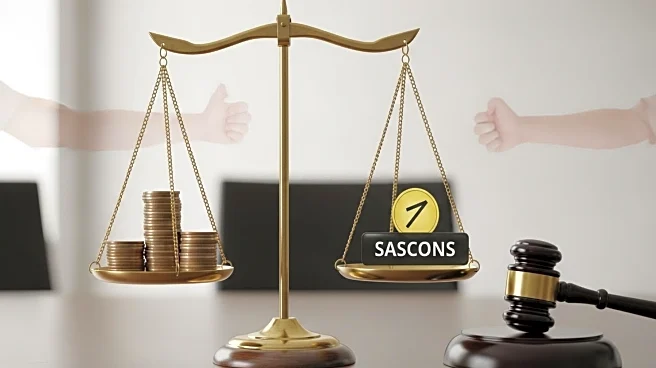What's Happening?
The European Union, led by top diplomat Kaja Kallas, has unveiled plans to impose tariffs and sanctions on Israel in response to alleged human rights abuses in Gaza. The proposed measures include tariffs on approximately €5.8 billion worth of Israeli goods and sanctions against two Israeli government officials. This marks a significant shift in the EU's policy towards Israel, aiming to pressure the Israeli government to address humanitarian issues in Gaza. The measures are designed to target the government rather than the Israeli populace, reflecting the EU's intent to influence policy changes without broadly penalizing Israeli society.
Why It's Important?
The EU's decision to impose tariffs and sanctions on Israel is a notable development in international relations, highlighting the bloc's willingness to take a stand on human rights issues. This move could strain EU-Israel relations and impact trade, given that the EU is Israel's main trading partner. The sanctions also reflect growing international scrutiny of Israel's actions in Gaza, potentially influencing other nations' policies towards Israel. For the EU, this action underscores its commitment to human rights and could set a precedent for how it addresses similar issues with other countries.
What's Next?
The proposed measures will need approval from EU member countries, and their implementation could face opposition from some EU capitals. The reaction from Israel has been swift, with accusations that the EU is empowering terrorist groups. The unfolding diplomatic tensions may lead to further negotiations or adjustments to the proposed sanctions. Additionally, the EU's actions could prompt discussions within Israel about its policies in Gaza and its international relations strategy.










